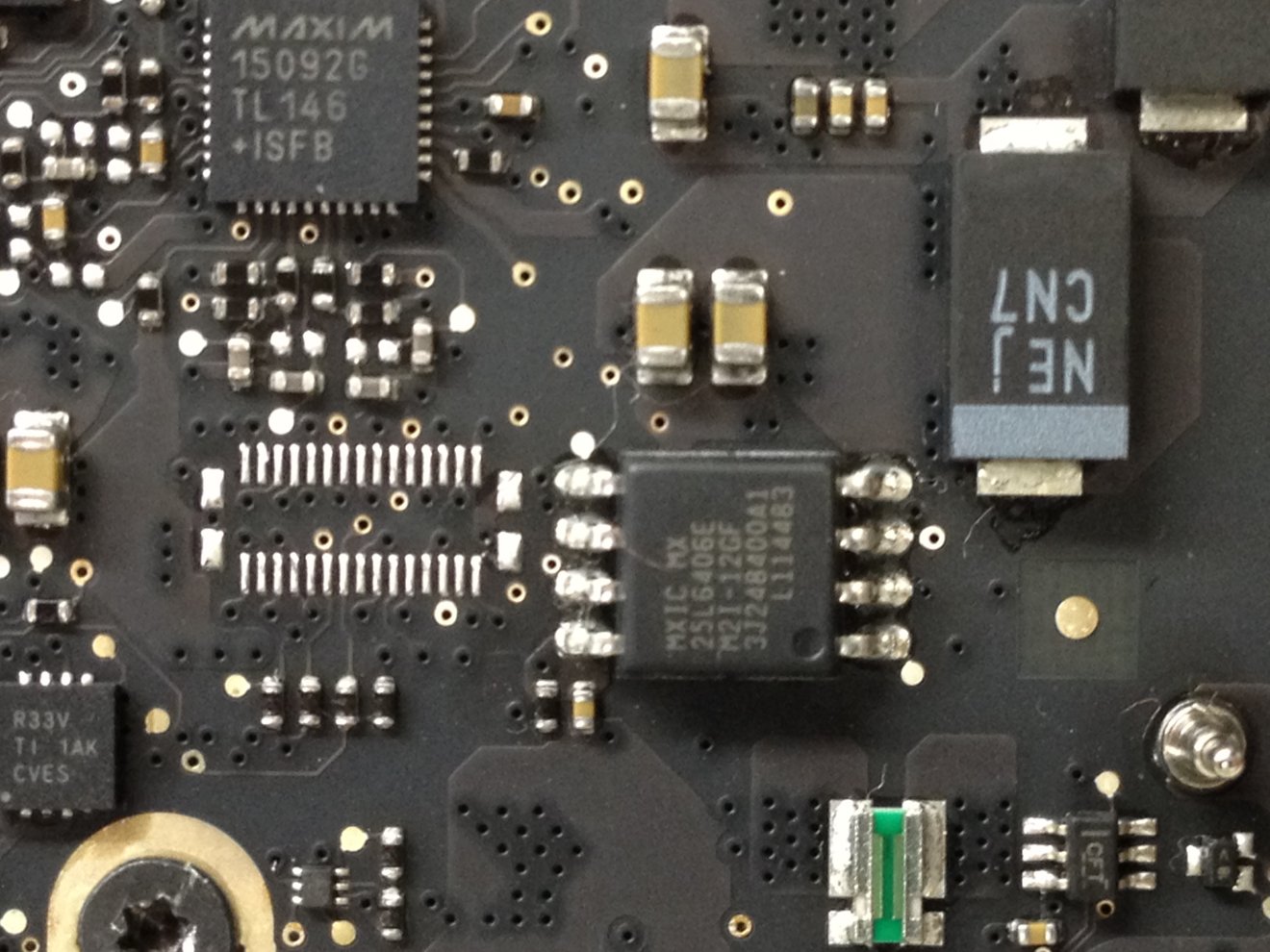A Mac hardware vulnerability that has yet to be exploited on a wide scale will reportedly be fixed with Apple's forthcoming OS X 10.10.2 update for Yosemite, preventing any future attacks.
The so-called "Thunderstrike" hardware exploit was publicized late last year, but the hack takes advantage of a flaw in the Thunderbolt Option ROM first disclosed in 2012. Until now, that flaw hasn't been patched, but according to iMore, the latest beta of Apple's OS X 10.10.2 update fixes the problem.
Citing people familiar with the software, it was said that OS X 10.10.2 prevents the Mac's EFI boot ROM from being replaced, and also makes it impossible to roll it back to a previous state.
The "bootkit" hack, discovered by researcher Trammell Hudson, could replicate itself to any attached Thunderbolt device. That means the exploit could spread across air-gapped networks, unbeknownst to users.
The code becomes stored in a separate ROM on the logic board, which would allow the attack to remain even if the user were to install OS X or put in an entirely new hard drive.
While such low-level attacks are dangerous because they are difficult to detect and can do significant damage, they are also more challenging to spread because they require physical access to a machine.
Thus far, Apple has issued five betas of OS X 10.10.2 to developers, with the most recent release arriving last week. Developers have been asked to focus on problem areas including Wi-Fi, Mail, VoiceOver and Bluetooth.
 Katie Marsal
Katie Marsal








 Bon Adamson
Bon Adamson
 Marko Zivkovic
Marko Zivkovic
 Amber Neely
Amber Neely
 Malcolm Owen
Malcolm Owen


 Christine McKee
Christine McKee



-m.jpg)






24 Comments
Glad to see Apple moved on this. Obviously it's harder to get access to a machine than to remotely download something, but it's still an issue.
you really need to up your game when reporting on these sort of things. Other sites were reporting on this days ago and as a major Apple "news" site people expect AI to be on the ball.
you really need to up your game when reporting on these sort of things. Other sites were reporting on this days ago and as a major Apple "news" site people expect AI to be on the ball.
Hey, there's no time for such "nonsense" when "infidels" like NVIDIA, AMD, and Intel must be taken down in print
For this issue, Microsoft's been way ahead with Secure Boot in Windows 8 (October 2012). And there, they had to corral all the third-party video, storage, and network card manufacturers to migrate from BIOS to signed UEFI firmware, where Apple was already on EFI and controls the whole ecosystem in-house.
Hey, there's no time for such "nonsense" when "infidels" like NVIDIA, AMD, and Intel must be taken down in print
For the fourth time inside of two weeks....